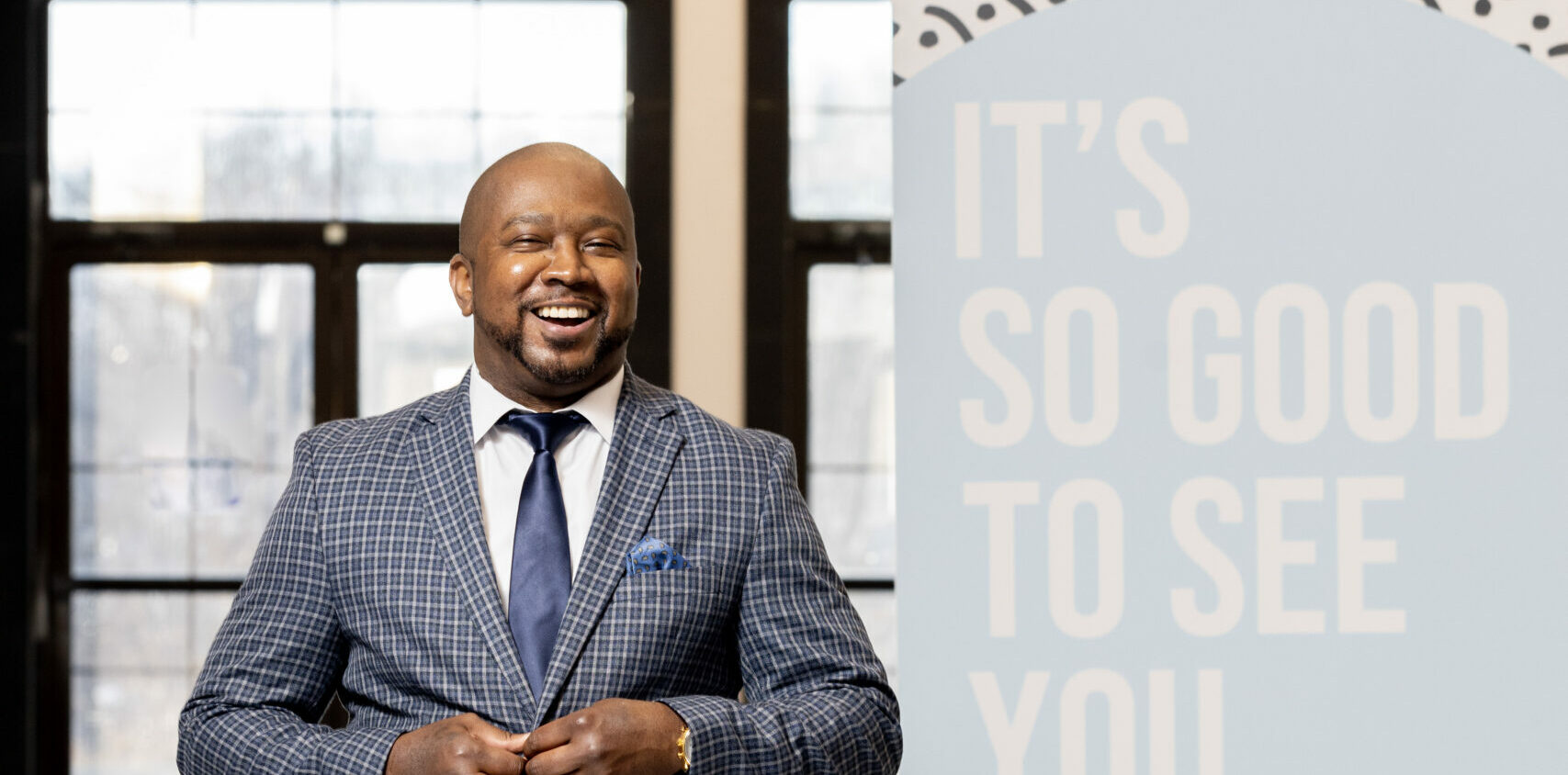Damon Daniel joined Ad Hoc Group Against Crime as executive director in 2015. He was enrolled in seminary at the time, pursuing studies to deepen his understanding of his own faith and call to ministry, a vocation he was drawn to through his work as a community organizer. Daniel had more than 20 years of experience doing community work on issues of racial justice, economic development, fair policing and equitable access to employment, health and community safety.
He was part of a team of community organizers from Kansas City that spent months in the St. Louis area in 2014 following the police shooting of Michael Brown. His experience on the ground in St. Louis helped further clarify his call to ministry. Daniel had met Mr. Alvin Brooks on many occasions and had known a few of its board members. So, when the organization was approaching a leadership transition and asked Daniel to take the helm, he felt it was a calling that emerged at the right time.
Founded in 1977, the mission of Ad Hoc Group Against Crime is to deliver healing and justice to the Kansas City metropolitan community. The organization pursues its mission and purpose by providing services to families and individuals who have been victims of crime. The organization provides mental health therapy, relocation assistance, advocacy with law enforcement and the justice system, and community crisis response and facilitation.
“There are generations of people in Kansas City that have never heard of Ad Hoc Group Against Crime,” said Daniel. “Most often, people learn about our organization at the very worst time in their lives. I want to be able to reach those people and provide assistance before they need us.” 
Daniel said his near-term vision for the organization is to fully implement the Ad Hoc Institute for Healing and Justice to advance community engagement and policy changes that include social, economic and environmental justice. With the help of the Kansas City philanthropic community, Damon hopes to launch the institute in late 2023. Due to the pandemic, momentum stalled in 2020. Although some programming efforts were slowed, Daniel said urgent, public demands for policing, criminal justice and wage reforms drew more energy and interest in Ad Hoc and its role.
One of eight Black-led nonprofits awarded Centering Black Voices grants in 2022, Daniel said he is using this capacity-building opportunity to help him move the Institute vision forward. Daniel said the work ahead includes expanding mental health services, continuing to add effective community partnerships, and creating physical, mental and emotional space for innovation that can help the community address trauma and policy change. To increase Ad Hoc’s impact, Daniel is partnering with universities and community colleges to support research and provide internships and service-learning opportunities for youth and adults.
“One of the challenges I face is trying to create ways for volunteers to get involved,” he said. “It takes time and attention to pull in volunteers meaningfully – but I would love to find ways to engage the next generation to contribute and participate in our work.”
Daniel said the pandemic forced the organization to rethink how it delivers programs and services. The nonprofit also found itself having to relocate its office space to a virtual environment. He said that while it took some transitioning, his team have identified ways to continue the mission.
“Unfortunately, we’re not unlike many nonprofits that struggle to identify affordable office space. Buildings are out there, and space is available, but the costs are prohibitive,” Daniel said.
Even with the interruptions brought by a pandemic, Daniel said there are exciting opportunities ahead, including planning for a capital campaign and the availability of donated land.
“Organizations like ours discover that we can secure program funding, but general operating support is hard to find. Those resources provide us flexibility – and can help us keep the roof over our heads and be responsive to our clientele. We need that flexibility.”
While Daniel taps into the CBV opportunity to help him with organizational challenges, he says the root causes of violence are still in place. There is still a huge gap in resources and pathways to economic growth for his community.
“Until we get to doing those real things, for real people who are overlooked in many of our neighborhoods, unfortunately, we will still experience the violence we see today,” Daniel said.



